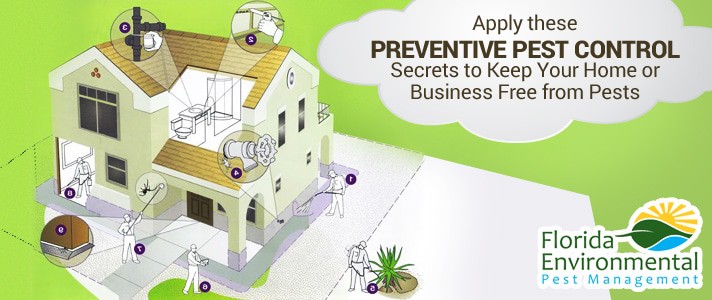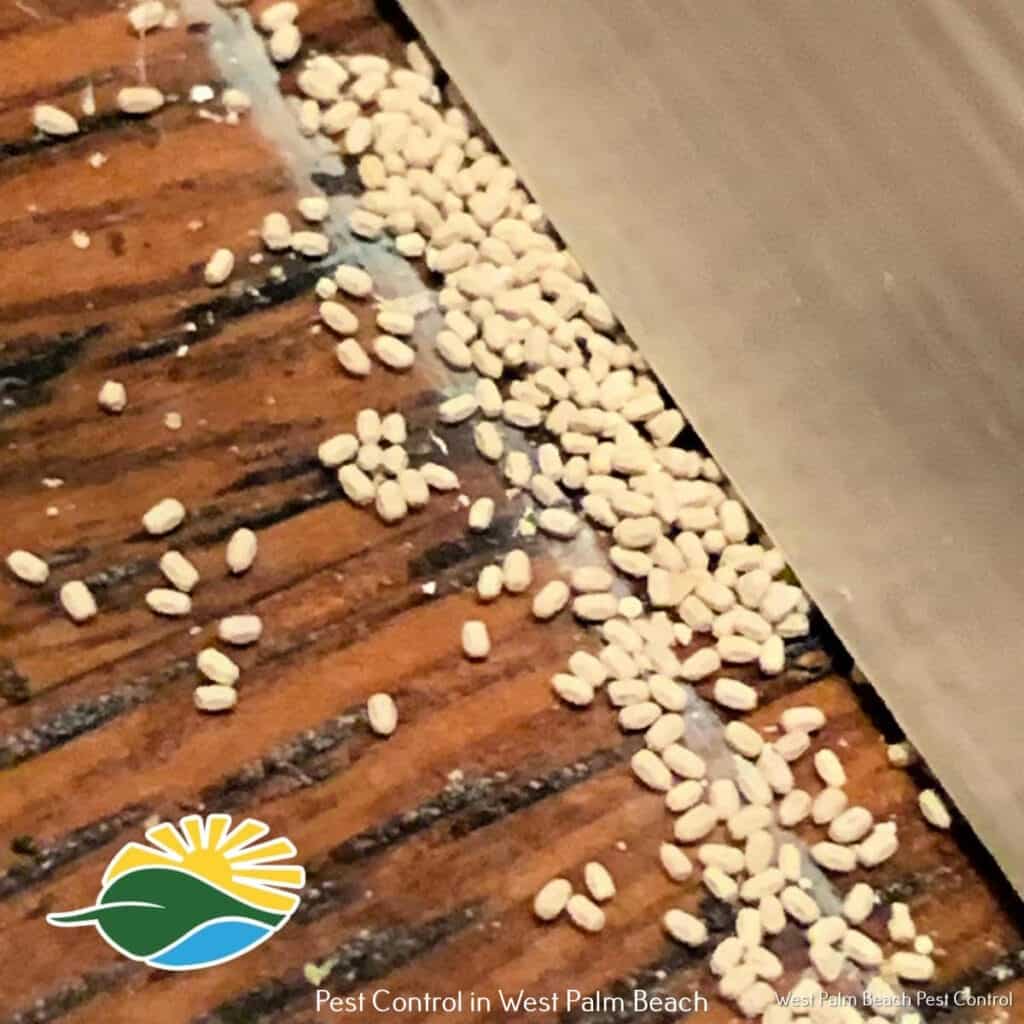Prevention is key when dealing with pests of any kind! Follow this simple set of common guidelines to help prevent pests in your yard or establishment. Preventive pest control is essential for any business – retail, restaurant, or offices. Pests are the last thing customers want to see in a restaurant or retail store and many will not return if a pest is spotted. Proper inspection, prevention techniques, and pest repellant defenses are the best way to ensure pests are kept at bay.
What is preventive pest control?
Preventive pest control is a method of managing pests by preventing them from becoming a problem in the first place rather than simply reacting to an infestation after it has occurred. This approach involves identifying and eliminating potential pest entry points and removing conditions that are conducive to pest activity, such as food, water, and shelter sources.
Preventive pest control measures may include regular inspections of a property to identify and address pest issues before they become widespread, sealing cracks and gaps in walls and foundations to prevent pests from entering the building, maintaining good sanitation practices to eliminate pest food sources, and implementing exclusion techniques such as installing screens on windows and doors to keep pests out.
Implementing preventive pest control measures can reduce the likelihood of a pest infestation, saving you the time, money, and hassle of dealing with a full-blown pest problem. Additionally, this approach to pest control is often more environmentally friendly than traditional pest control methods that rely on the use of chemical pesticides.
Inspection Steps
The first step for any preventive pest control measure is to inspect the business property thoroughly and make sure all exteriors are sealed. Be sure to check for cracks and holes as pests such as mice, rats, and ants can squirm through even the tiniest entry points. Have your building manager caulk any holes and cracks to ensure adequate prevention.
Prevention Techniques
Your best bet for complete pest prevention is to remove any and all sources of food, water, or shelter depending on the pest. Be sure to keep tidy and rid your establishment of any cardboard, newspaper, or paper clutter where pests could hide and breed. Make sure to conceal garbage tightly in covered trash cans and only store food in sealed plastic or glass. In the interior, be diligent in closing off any and all places where pests could reside. For example, cover any holes with wire mesh and utilize steel wool to surround piping. Never let water accumulate anywhere around the home or business – especially under houseplants or your refrigerator. Inspect your home fully, the items your bring into it, and educate yourself on the pests you have and your options to eradicate them.
Treatment Methods
Determining the pest to be treated and obtaining the right repellant can be an effective way to repel unwanted invaders. Many pest repellants on the market even work naturally as they mimic spices or a predator’s smell. For effective pest maintenance, spray the repellant around the exterior every 1 to 3 months (depending on climate) and cracks or crevices every 6 months. For liquid insecticides, it’s most efficient to apply every 90 days around the perimeter of the establishment. In cases of high heat or particularly unruly pests feel free to apply as often as every 30 days.
Sometimes preventive maintenance is not adequate, infestations occur regardless, and these unwanted guests just refuse to budge. In these instances, after ensuring adherence to the sanitation and prevention tips, we recommend loading bait stations with rodenticide and placing them strategically around the perimeter of your structure. Be sure to place these loaded stations near points of entry and all corners of the establishment.
Preventive Pest Control Services
In actuality, there are numerous factors that can lead to infestation. Urban or rural location, layout and size, age and condition of the structure, and nature of the business can all be contributing factors to pest takeovers.
Unfortunately, no preventive pest routine is perfect and insecticides cannot fully protect your home or business from these irritating visitors. In these instances, be sure to contact preventive pest control service providers like Florida Environmental Pest Management, who are qualified and knowledgeable on how to rid your structure of pests entirely.
FAQs
What are the best ways to prevent pests?
Below are some of the smartest ways to prevent a pest infestation in your home or office
- Keep your living spaces clean and tidy to reduce potential pest habitats.
- Seal any cracks or openings in walls, floors, and windows to prevent pests from entering.
- Store food in airtight containers to limit access to pests.
- Dispose of trash regularly and keep it in a sealed container.
- Use pesticides or natural repellents, such as essential oils, to deter pests.
Can I handle pest prevention myself?
You can take certain actions on your own to prevent pests from swarming your home. These actions may not be enough, as one cannot predict when and how these pests will make their way into your home. However, working with a pest control professional will guarantee the use of other, more trusted methods and solutions.
When should I start a pest prevention process?
There is no better time to start preventing your home against pests than when you haven’t seen any signs of them in your home. If you live in a termite-prone environment or have just recently concluded a termite extermination exercise, you must take preventive actions to prevent them from returning to your home to save you the damage, trouble, and extra cost of having them removed again. These pests populate fast, and you’ll never know when they’re there.





